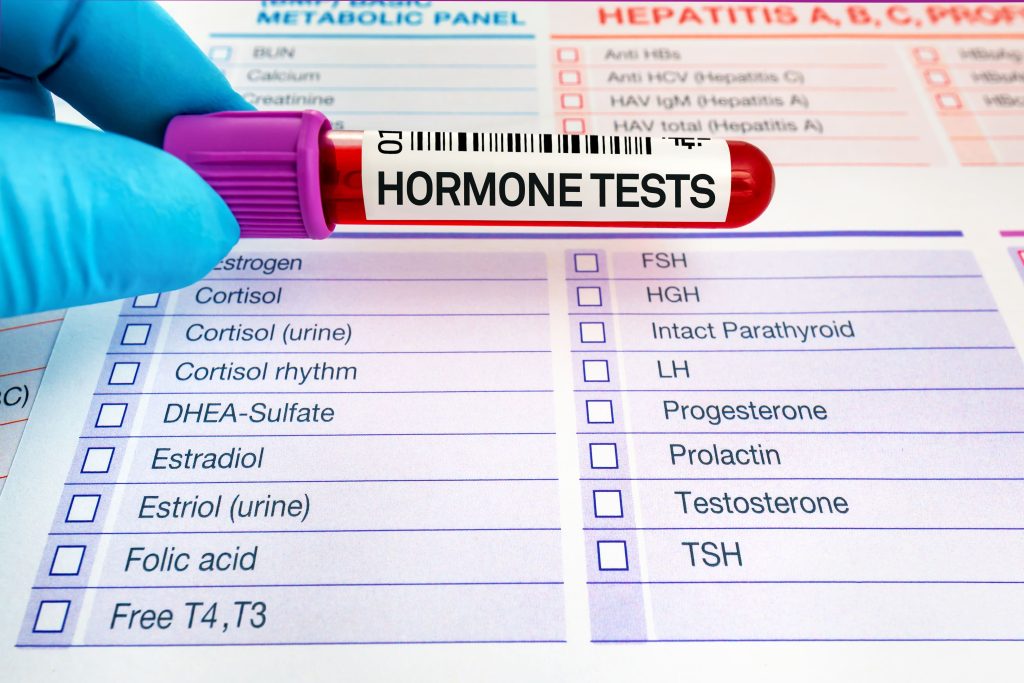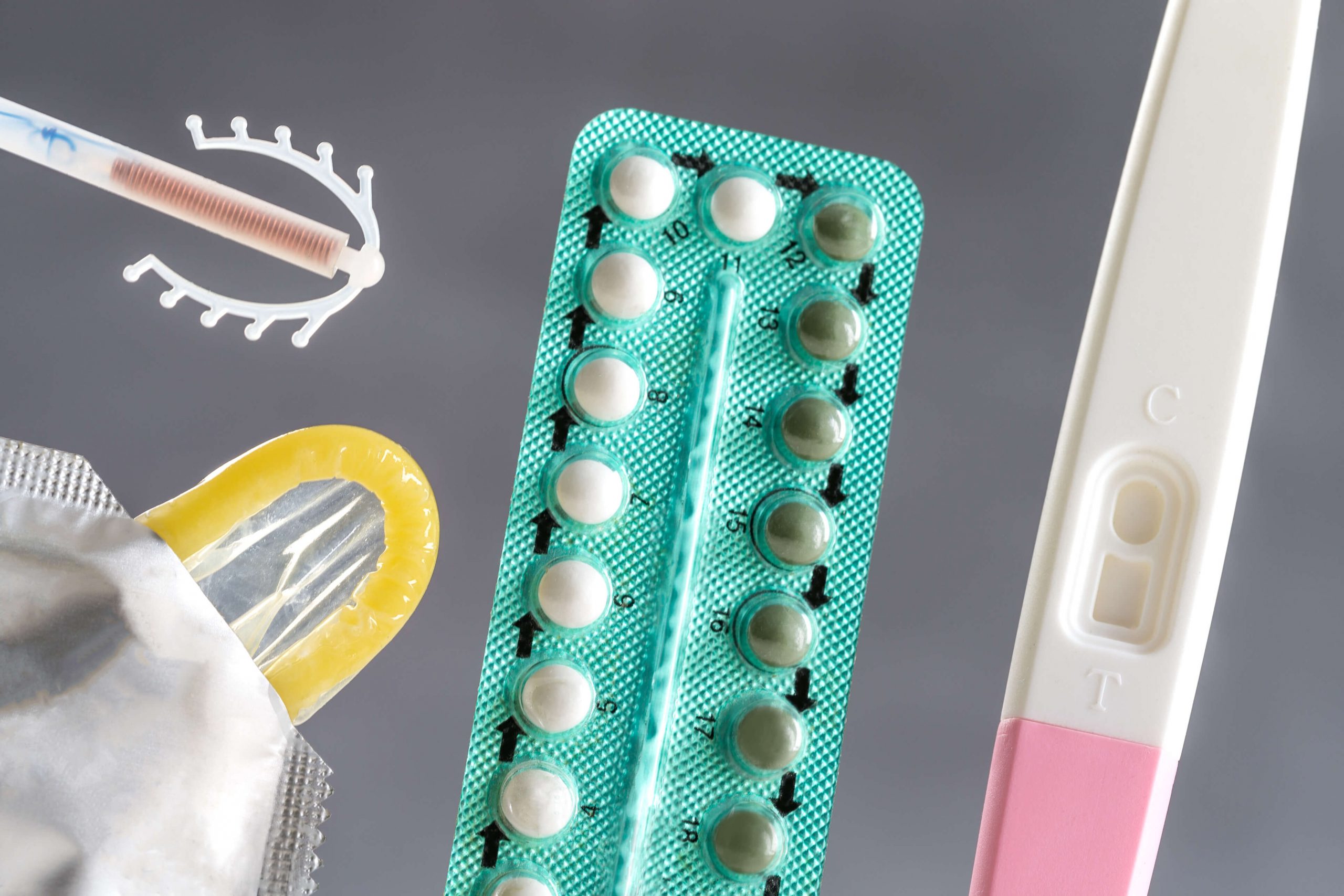Women's Health
Pituitary Gland Disorders: Signs, Causes & Treatments

Sometimes known as the ‘master gland’, the pituitary gland is responsible for the production of hormones which enable other glands to function. Through these hormones, the gland is responsible for the regulation of growth, water balance, reproduction and other bodily functions.
The pituitary gland is roughly the size of a pea and is located in the underside of the brain, just behind the bridge of your nose. It is connected to the hypothalamus, which is an area of the brain that controls body temperature, hunger, and thirst. Both the pituitary gland and hypothalamus work together to maintain daily physiological cycles and regulate release of hormones.
Read on to learn more about pituitary gland disorders, causes, diagnosis and treatment.
Causes
Pituitary gland disorders occur when they overproduce or underproduce a specific hormone. This is often caused by tumours in the pituitary gland, which are usually benign. Some of these disorders of the pituitary gland include:
Tumours
Pituitary tumours occur when cells grow abnormally in the pituitary gland. They can cause disorders when they produce an excessive amount of pituitary hormones, such as acromegaly, prolactinoma, secondary hyperthyroidism and pituitary cushing’s. Sometimes the tumour can compress on the healthy pituitary tissues and cause a reduced production of pituitary hormones and even hypopituitarism.
Most of the tumours in the pituitary gland are typically benign, tends to grow slowly and do not spread to other areas of the body. However, having tumours in the gland are still a cause for concern as large tumours can press and affect the nerves around them. Tumours also produce large amounts of hormones, which can disrupt normal physiological cycles and sometimes cause life-threathening conditions.
Hypopituitarism
Hypopituitarism is the deficiency of one or more of the hormones that your pituitary gland produces. This disorder is rare but can happen suddenly after an event such as surgery or injury or develop slowly over many months or years. It can affect growth, reproduction and blood pressure.
Acromegaly
Acromegaly is a condition where the pituitary gland produces too much growth hormone. 95% of these cases are caused by benign (non-cancerous) pituitary tumours. Without treatment, acromegaly may cause complications.
Cushing’s Syndrome

Cushing’s syndrome is a condition resulting from excessive cortisol, a hormone produced by the adrenal glands. The most common Cushing’s syndrome is Cushing’s disease, caused by excessive production of the adrenocorticotropic hormone (ACTH) by the pituitary gland. ACTH stimulates the adrenal glands to produce cortisol.
Cushing’s syndrome can be caused by a tumour of the pituitary gland, a tumour of the adrenal gland, or by long-term use of corticosteroids.
Treatment for Cushing’s syndrome depends largely on its cause. In some cases, surgery may be required to remove the tumour or the pituitary or adrenal glands. Other treatment options may include radiation, chemotherapy, and hormone-inhibiting drugs.
Diabetes Insipidus
Diabetes Insipidus occurs due to the pituitary gland not producing enough vasopressin, or antidiuretic hormone (ADH Hormone), which helps to maintain the correct amount of water in the body.
Symptoms include needing to urinate frequently during the day and night, passing large quantities of light-coloured urine, feeling excessive thirst and drinking lots of fluids. When left untreated, diabetes insipidus may lead to dehydration. Treatment options may include medications to stimulate the effects of vassopressin.
Other Common Conditions
There are other pituitary gland disorders. These include:
- Prolactinoma
- Pituitary apoplexy
- Craniopharyngiomas
- Empty Sella Syndrome
- Lymphocytic hypophysitis
- Sheehan’s syndrome
- Pituitary cysts, including Rathke’s cleft cysts
Signs and Symptoms
Symptoms of pituitary gland problems typically vary depending on the disorder, some may have no symptoms or a gradual onset of symptoms. It depends on the cause, how fast the symptoms come on, and the hormone that is involved. For example, in acromegaly, a condition where the pituitary gland produces too much growth hormone, the patient may observe an abnormally large growth of hands and feet, change in facial features and gigantism if the condition occurs during childhood.
In general, some pituitary gland symptoms include:
- Hair loss
- Headaches
- Changes in weight
- Irregular menstrual cycles
- Diabetes
- Low energy
- Problem with vision
- Anxiety or depression
- High blood pressure
- Unexpected breast milk production
- Vomiting
If you are suffering from any of the above mentioned symptoms, you should seek immediate help from an endocrinologist to determine the cause.
Diagnosis & Treatments For Pituitary Gland Disorders
Diagnosis

Many pituitary disorders have symptoms that are slow to develop or can be confused with other illnesses. Your endocrinologist will run several tests to diagnose your condition and provide an effective treatment plan.
Hormone tests
Accurately measuring your pituitary hormone levels can help to confirm a diagnosis. Tests may include the following types:
Hormone evaluation: Hormone levels in your body will be measured before treatment to provide a baseline. Tests may involve taking blood samples, saliva and urine.
Dynamic tests: Various tests can be conducted to either increase or suppress production of specific hormones to judge the body’s response. Typically, hormone levels will be measured first before giving medication or solution taken orally or injected. The levels will be re-checked over a period of time.
- Dexamethasone suppression tests: Medication will be given orally to lower cortisol production, then check cortisol levels in your blood. If the levels stay high, results can help to diagnose Cushing disease/syndrome.
- Synacthen test: Medication will be given either through intramuscular or intravenous injection and if level does not rise above a certain level, it may suggest that you have cortisol deficiency.
Your healthcare professional may also arrange for MRI pituitary to scan and identify any abnormalities in the pituitary gland.
Medicine
Your endocrinologist may prescribe medicine to decrease hormone production or replace your deficient hormones. For example, if the specialist discovers a specific hormone deficiency, medicine might be prescribed to replace the insufficient hormones.
Surgery
If a tumour is discovered in the pituitary gland, surgery may be required. This may be in the form of minimally invasive surgeries like endoscopic, transcranial or microscopic surgeries. These surgeries can be done via the nose or a small incision made near to the eyebrow.
Radiation Therapy
Radiation therapy may also be administered depending on the situation. This form of therapy is used to shrink the tumours and prevent further growth.
Conclusion
Pituitary gland disorders occur when they overproduce or underproduce a specific hormone. This is often caused by tumours in the pituitary gland, which are usually benign, but can compress the surrounding structures and cause problem when they enlarge. Seek medical attention if you are experiencing symptoms and suspect you might have a pituitary gland disorder. An endocrinologist will be able to run tests to diagnose your condition and provide you with an effective treatment plan.
WHO WE ARE
About SOG Health Pte. Ltd.
Established in 2011, SOG Health Pte. Ltd. (“SOG”) is a leading healthcare service provider dedicated to delivering holistic health and wellness services to the modern family.
With a long and established track record in Singapore providing Obstetrics and Gynaecology (“O&G”) services such as pre-pregnancy counselling, delivery, pregnancy and post-delivery care, the Group has since further expanded its spectrum of healthcare services to include Paediatrics, Dermatology, and Cancer-related General Surgery (Colorectal, Breast & Thyroid).
The Group’s clinics, under its four operating segments of O&G, Paediatrics, Oncology and Dermatology, are strategically located throughout Singapore to provide easy access to its patients.
- Obstetrics
- Gynaecology
- GynaeOncology
- Breast, Thyroid & General Surgery
- Colorectal, Endoscopy & General Surgery
- Dermatology
- Paediatrics
Consult With A Specialist From SOG
Visit one of our specialists today to learn more about your health!
Recommended Specialists
Book An Appointment
Fill up this form and our clinic will get back to you shortly.
For general enquiries, please click here.




